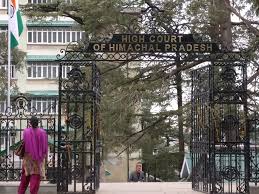(A)Indian Penal Code, 1860 – Section 366A, 376D – Gang Rape – Consent – Gang rape by three on school going girl – Plea of consent – Held: When there is a plea of consent, in our considered view, act of enticing away and rape is admitted unequivocally. One cannot blow hot and cold at the same time. In a plea of consent, the admission of incident is there and the accused has to prove the consent to secure his/there acquittal.
In order to establish ‘consent’ on the part of the prosecutrix, it has to be established by the convict that she freely submitted herself while in free and unconstrained position of her physical and mental power to act in a manner she wanted. Consent is an act of reason accompanied by deliberation, a mere act of helpless resignation in the face of inevitable compulsion, non resistance and passing giving in cannot be deemed to be consent. Consent means active will in the mind of a person to permit the doing of the act and knowledge of what is to be done or of the nature of the act that is being done is essential to a consent to an act.
The court cannot be oblivious to the fact that even though the prosecution has not been able to prove that the prosecutrix was minor, yet it has been established on record that at the time of incident, she was student of 9th standard and her evidence is required to be proved in this background. This Court has no hesitation to hold that the prosecutrix has established beyond any reasonable doubt that she had been gang-raped by the appellants. Conviction upheld. (Para 54, 55, 56)
(B) The Protection of Children from Sexual Offences Act, 2012 – Section 4 – Indian Penal Code, 1860 – Section 366A – Rape – Age of Prosecutrix – Evidence – Admission and withdrawal register, which goes to show that the prosecutrix had left the school after completion of her 5th class, so the document would be in a nature of transfer certificate and is thus not admissible in evidence even if it is assumed that the prosecutrix is a minor. Held: What stands established on record is that the prosecutrix cannot be termed to be a child or minor and therefore, the appellants and respondent No.2 could not have been charged and thereafter convicted and sentenced under Section 366A or Section 4 of the POCSO Act. Consequently, that part of the judgment is quashed and set aside. (Para 18, 22)
HIGH COURT OF HIMACHAL PRADESH
2023 STPL(Web) 108 HP
[2023:HHC:9519]
Kuldeep Kumar & Anr. State Of H.P. & Anr.
Cr. A. No. 609 of 2017-Decided on 22-8-2023
https://stpllaw.in/wp-content/uploads/2023/08/2023-STPLWeb-108-HP.pdf







